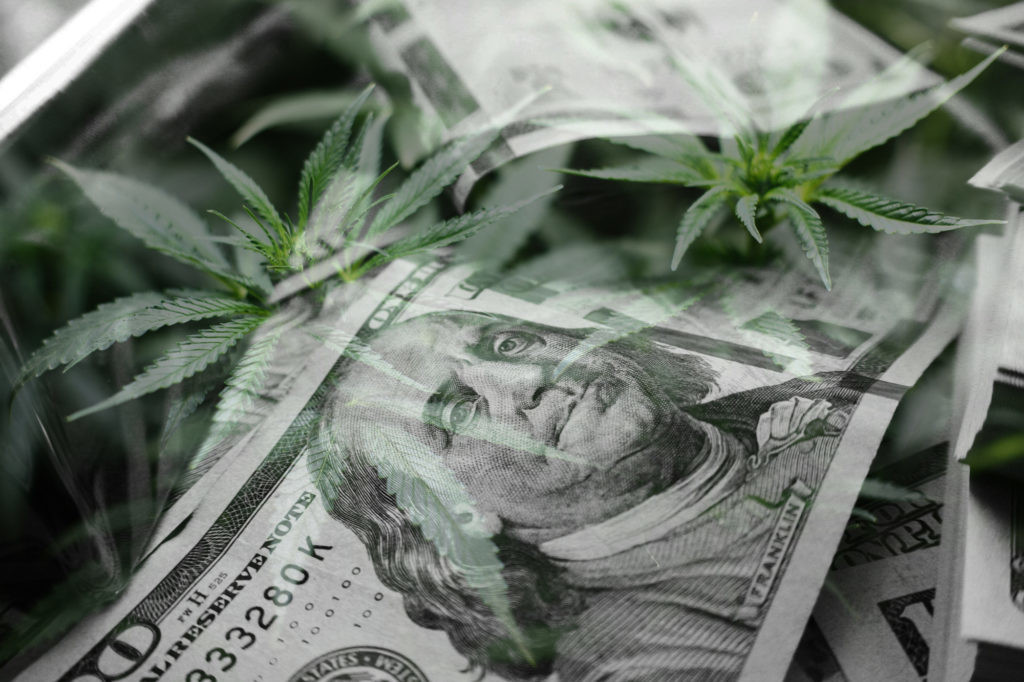The cannabis industry has dramatically evolved in many ways since the first legal adult use program was established in Colorado back in 2012. One area — cannabis banking — has evolved more than most, subject to an ever-changing litany of rules, regulations, and conditions while always under the looming threat of federal prohibition.
In an industry that so frequently changes, where hemp and marijuana (both cannabis plants by nature) are considered wildly different products and subject to wholly different rules, it is critical that entrepreneurs choose experienced partners with a proven track record of navigating the ebb and flow of the legal cannabis industry. In cannabis banking, this is especially true; while it has already been a rocky road, there is more tumultuous ground left to traverse.
The real cannabis banking problem stems from banks
Simply put, cannabis businesses have a hard time securing and keeping bank accounts. Worse yet, they have virtually no access to common financial products and services like credit cards and loans.
Why is this the case?
The common refrain, of course, is cannabis remains federally illegal. While it is true the federal prohibition of cannabis is ongoing, there is strong precedent in place that establishes how to bank a cannabis business in a compliant manner. The truth is, it is not prohibition preventing more widespread banking access to cannabis businesses but the bankers themselves.
It is simply the result of the nearly century-long drumbeat of Reefer Madness-style propaganda that has led to a visceral rejection of cannabis on the part many banks’ leadership. There is a long-ingrained prejudice on the part of bank leadership that cannabis is a disreputable business. It is not federal prohibition that bars banks from working with cannabis businesses at all.
The federal government deliberately stepped out of the way of legal cannabis banking six years ago due to two key pieces of guidance. The first was the Cole Memorandum, a U.S. Department of Justice (DOJ) memo that directed prosecutors to stop enforcing federal cannabis laws against state-compliant cannabis businesses.
The second key piece of guidance was released by the Financial Crimes Enforcement Network (FinCEN), which prioritized anti-money laundering security and policies on the part of banks working with cannabis businesses. To this day, all major bank examiners rely on this FinCEN guidance when auditing banks that work with cannabis businesses. So long as these standards are adhered to, the federal government has not imposed any consequences whatsoever on cannabis banking partners.
Short of these non-existent consequences that are oft-cited for the hesitation in banking cannabis businesses, the cannabis industry should be banked much like any other high-risk industry (think check-cashing, firearms, gambling, and so on). Unfortunately, that is simply not the case.
And things only get more complicated from here.
How the 2018 farm bill changed cannabis banking (sort of)
In 2018, the president signed the 2018 Farm Bill, which included a provision that de-scheduled hemp and hemp-derived CBD from the U.S. Controlled Substances Act (CSA). This effectively legalized hemp, defined as cannabis containing less than 0.3 percent THC and differentiated it from “marijuana,” or cannabis containing 0.3 percent THC or greater.
This differentiation meant a split in banking regulations. Now that hemp and hemp-derived CBD were considered legal under federal law, they could not be banked in the same way state-legal cannabis businesses would be. While federally illegal cannabis banking focused on anti-money laundering and fraud detection, federally legal hemp would require a different regulatory framework altogether.
That framework is centered on something completely different: product integrity.
When hemp and hemp-derived CBD products were federally de-scheduled, the U.S. Drug Enforcement Agency ceded regulatory authority to the U.S. Department of Agriculture (USDA), which would determine standards for cultivation and distribution of hemp, and the U.S. Food and Drug Administration (FDA), which would govern animal and human consumption of hemp and CBD.
While the USDA has released guidance on domestic hemp production, the FDA has been less successful in clarifying rules regarding hemp-derived CBD. The FDA has only established one major rule on CBD: it is illegal to market CBD with any unsubstantiated health claims. Beyond that, the FDA has differentiated topical CBD formulations from ingestible CBD, opening banking to some degree for CBD creams, gels, and lotions.
This has made it difficult for entrepreneurs and bankers alike to know exactly what compliant CBD banking looks like. It is clear, however, that hemp and CBD must contain less than 0.3% THC content, and so much of the focus has landed on that number. Banks are preoccupied with ensuring their clients are truly in the hemp business (and not selling marijuana, whether deliberately or accidentally bringing a higher-percentage THC product to market) to avoid running afoul of federal law.
So, in other words, product integrity became the focus for hemp and CBD banking, while cannabis banking remained focused on anti-money laundering.

Where does cannabis banking go from here?
Today, there are roughly 175 banks out of the 6,000 in the U.S. that are willing to work with cannabis businesses overall. Of those banks, only sixty-five are willing to work with THC licensees. In other words, about 1 percent of banks in the U.S. are willing to bank state-legal cannabis businesses. At Fincann, we continue to expand our network and add more banking partners, but the banking industry at large has yet to embrace cannabis.
Obviously, while conditions have improved, there remains a long way to go.
Congress recently took up cannabis reform measures. The House of Representatives recently passed the Marijuana Opportunity, Reinvestment, and Expungement (MORE) Act, which would effectively de-schedule cannabis in the same way the 2018 Farm Bill de-scheduled hemp and CBD.
If cannabis were federally de-scheduled, it would throw the state of cannabis banking and CBD banking into further chaos.
Federal de-scheduling of cannabis would mean all the work done to establish the 0.3 percent THC threshold (and then bank businesses based on adherence to that standard) would be moot. All the focus on anti-money laundering and fraud detection for THC licensees would likely shift to product integrity as well, and the two parallel worlds of cannabis banking would need to be reconciled into one, unified regulatory framework.
The sooner this chaos happens, the better. These growing pains are essential steps that bring the cannabis industry out of the black market and integrate it into our larger financial and banking system. While the dramatic evolution of the industry will no doubt be difficult and painful, they must be traversed in order to arrive in a world where cannabis businesses are availed to the same services as other legal operations.
There is no question more rocky changes are coming for cannabis banking, especially as the word “legalization” makes its way to Capitol Hill. As an entrepreneur, it is important to face those changes with an experienced partner that has a proven track record of anticipating change and adapting accordingly.
Having worked to establish a network of both cannabis- and CBD-friendly banks for years, Fincann is no stranger to navigating change. With one final push on the horizon that could change the entire landscape of cannabis banking, the relationships Fincann has forged with cannabis-friendly banks will be more important than ever. After all, growing access to banking across the entire cannabis industry will take team effort.












